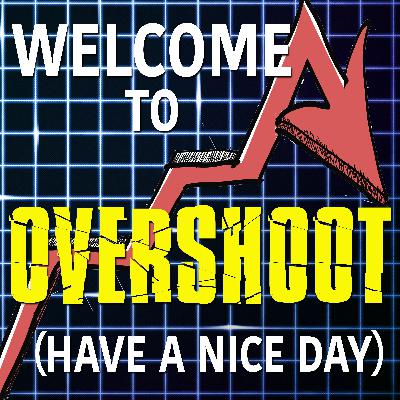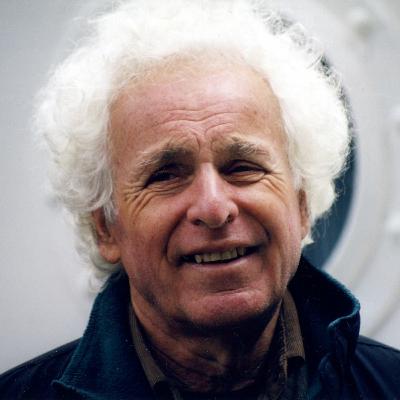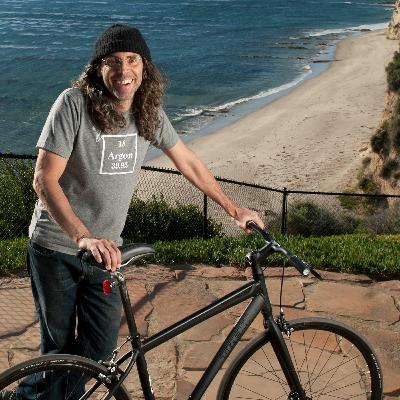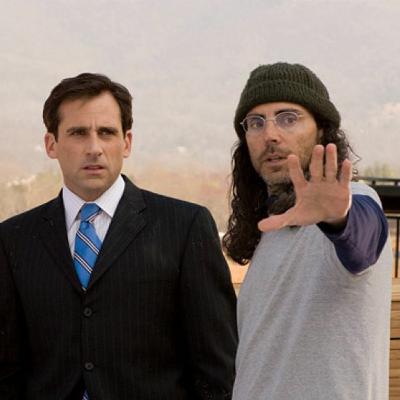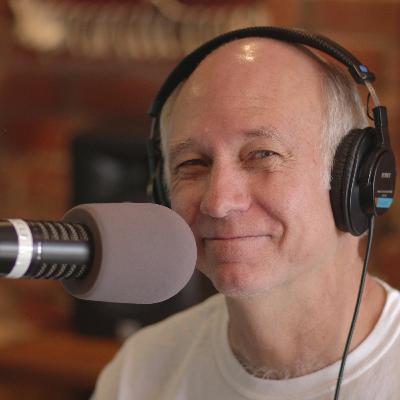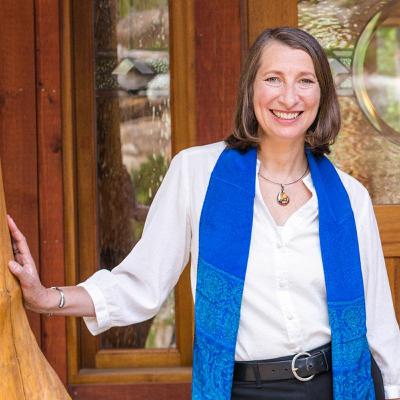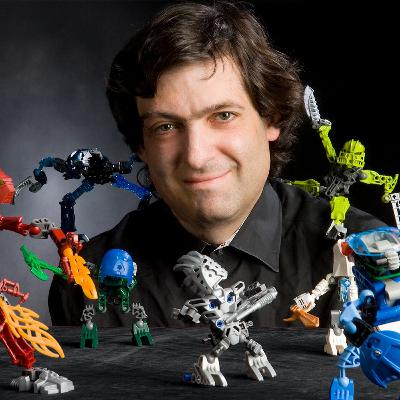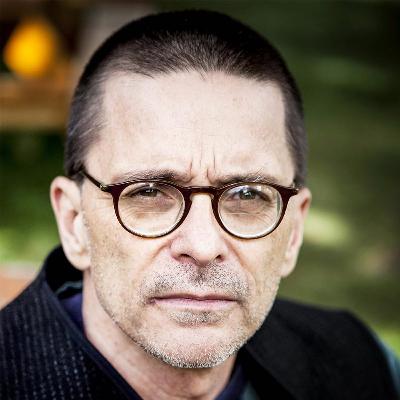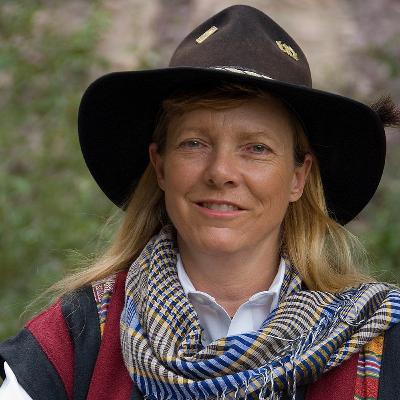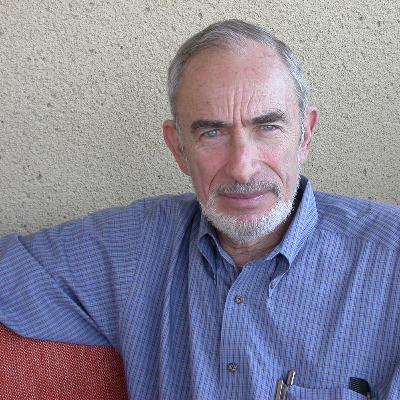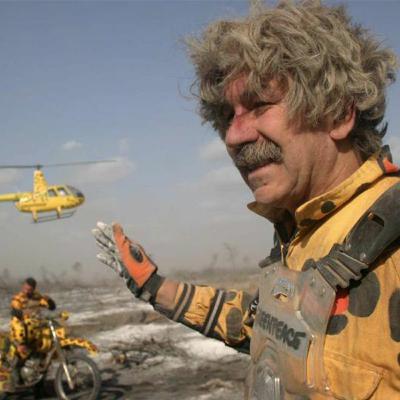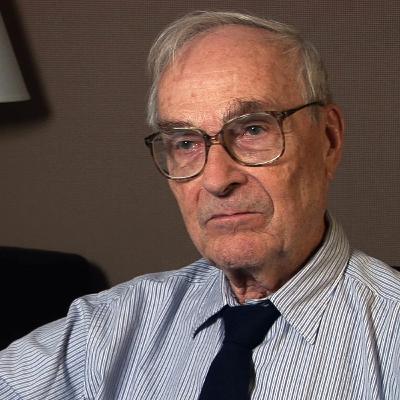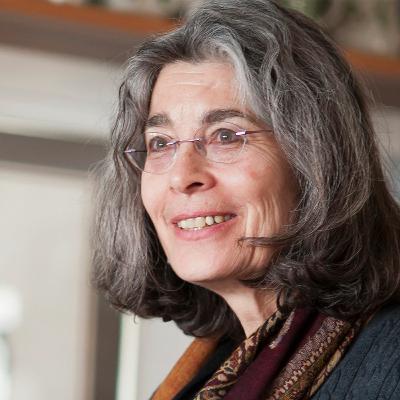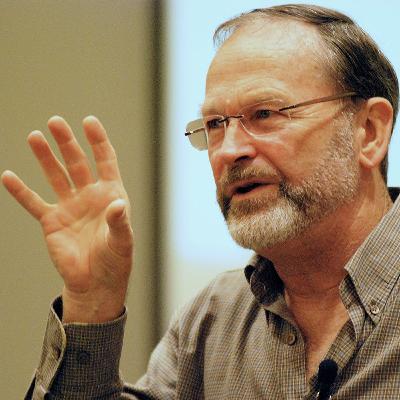Discover Conversation Earth
Conversation Earth

Conversation Earth
Author: Citizen-Powered Media
Subscribed: 30Played: 278Subscribe
Share
© All rights reserved
Description
For the first time in history, the activity of human civilization reaches into every corner of the globe. So significant is the role we play that our time has been dubbed the Anthropocene Epoch. This calls for self-examination at a new level. Conversation Earth presents insightful dialog with the leading thinkers of our time. Philosophy, ethics, science, psychology and economics, at a macro level, and all focused on humankind’s relationship with the planet.
64 Episodes
Reverse
The best scientific estimates tell us human civilization is in overshoot. Were you aware of this? Do you know what overshoot is? Earth Overshoot Day in 2020 is August 22.
Computer modeling by a team of MIT scientists in 1972 estimated the scale of human activity on the planet would cause systems to fail within a hundred years. Such failure is expected when humanity’s footprint on the planet consistently exceeds its carrying capacity. Since 1972, study after study, and report after report, has warned we are in overshoot – the sum total of human activity is too much for the Earth’s ecosystems to bear.
Since 2003, scientists at Global Footprint Network have been analyzing UN data and satellite imagery to estimate the planet’s capacity to meet our needs (biocapacity), and humankind’s footprint - or demand (ecological footprint) - on that capacity. Their analysis suggests we have been in overshoot since about 1970. Welcome to Overshoot explores overshoot’s causes, effects, and possible solutions, as well as some of the barriers to solving the problem.
Reported by: Dave Gardner
Interviews:
William Catton, author of Overshoot: The Ecological Basis of Revolutionary Change
Brian Czech, author of Supply Shock: Economic Growth at the Crossroads and the Steady State Solution, and executive director of the Center for the Advancement of the Steady State Economy
Herman Daly, author of Beyond Growth: The Economics of Sustainable Development
Paul Ehrlich, Stanford Biologist, author of The Population Bomb
Kerryn Higgs, author of Collision Course: Endless Growth on a Finite Planet
Ian Johnson, former World Bank vice president, former secretary general of Club of Rome
Bill McKibben, environmental journalist, author of Falter: Has the Human Game Begun to Play Itself Out?, co-founder of 350.org.
Dennis Meadows, lead scientist, The Limits to Growth
Kate Raworth, author of Doughnut Economics: 7 Ways to Think Like a 21st Century Economist
William Rees, co-originator of ecological footprint analysis
Bill Ryerson, President of Population Media Center and Chair of Population Institute
Juliet Schor, Professor of Sociology at Boston University and author of Plenitude: The New Economics of True Wealth
John Seager, CEO of Population Connection
Gus Speth, former chair, White House Council on Environmental Quality
Mathis Wackernagel, founder of Global Footprint Network and co-author of Ecological Footprint: Managing Our Biocapacity Budget
Rex Weyler, environmental journalist
Links:
Earth Overshoot Day
https://www.overshootday.org/
The Limits to Growth
http://donellameadows.org/the-limits-to-growth-now-available-to-read-online/
Conversation Earth
http://www.conversationearth.org/episode-list
GrowthBusters Podcast about sustainable living
http://www.growthbusters.org/podcast
Since 1972, study after study, and report after report, has warned we are in overshoot – the sum total of human activity is too much for the Earth’s ecosystems to bear. Welcome to Overshoot explores overshoot’s causes, effects, and possible solutions, as well as some of the barriers to solving the problem. Featuring comments from William Catton (author of Overshoot), William Rees (co-originator of ecological footprint analysis), Kate Raworth (author of Doughnut Economics), Herman Daly, Paul Ehrlich and many more luminaries. (New episode 7/25/19)
Was globalization a temporary state that has run its course? That’s the case made by Jerry Mander, who believes there is plenty of evidence that the promises of capitalism, consumerism, individual wealth and never-ending growth are coming up empty. He’s founder of the International Forum on Globalization and author of The Case Against the Global Economy and for a Turn Toward the Local. He also wrote The Capitalism Papers: Fatal Flaws of an Obsolete System in 2012.
Jerry Mander is in a unique position to understand the power of advertising to move us to act against our best interests. After earning bachelor’s and master’s degrees in economics, he ended up in the advertising business, eventually as a partner at a San Francisco ad agency. He managed several early ad campaigns for the Sierra Club, working with famed environmentalist David Brower. In 1971 he founded the first non-profit advertising agency in the United States, Public Interest Communications.
Mander grew to realize the power of advertising was being used to preserve an unsustainable system that requires ever-increasing amounts of consumption. In response, he authored Four Arguments for the Elimination of Television in 1978. He founded the International Forum on Globalization in 1994 and continues to serve as a Distinguished Fellow.
This conversation was recorded in Jerry Mander’s office in 2011.
Hollywood director Tom Shadyac traded a mansion and private jets for a mobile home and a bicycle. He had found the traditional trappings of success were not the key to happiness. After a successful Hollywood comedy career and a near-death bicycle accident, Tom eagerly shares his discoveries about life and happiness.
In part two of a two-episode conversation, Shadyac discusses technology, morality, competition, success and politics.
His documentary, I Am, explored what’s wrong with the world and what we can do about it. His book, Life’s Operating Manual, shares his observations about the true meaning of life.
Learn more at http://www.conversationearth.org
Tom Shadyac is a successful Hollywood comedy director who found the traditional trappings of success were not the key to happiness. He traded a mansion and private jets for a mobile home and a bicycle. After a bicycle accident nearly killed him, he decided it was time to tell a different kind of story.
His documentary, I Am, featured interviews with Desmond Tutu, Noam Chomsky, David Suzuki, and others about what’s wrong with the world and what we can do about it. He also wrote the book, Life’s Operating Manual, which is a lot like it sounds.
In part one of this two-episode conversation, Shadyac discusses human nature, the definition of success, and our cultural story, with a few references to Bernie Sanders and Donald Trump along the way.
Tom Shadyac Films:
Ace Ventura: Pet Detective
The Nutty Professor
Liar, Liar
Patch Adams
Bruce Almighty
Evan Almighty
I Am
NOTE: We’re bringing you encore episodes from the 2nd season of Conversation Earth while we make plans for the future. Please support the continuation of Conversation Earth with a tax-deductible donation at http://www.tinyurl.com/ceseason3 Learn more and subscribe to our weekly updates at http://www.conversationearth.org
Host Dave Gardner explains why we'll be sharing encores from the 2nd season of Conversation Earth in the coming weeks, and why there are likely to be no more new episodes. The link mentioned in this brief message from Dave is http://www.tinyurl.com/CEseason3
While world leaders wring their hands over forecasts of timid GDP growth, a growing list of visionaries around the world are collaborating to redefine economic objectives in a more meaningful and sustainable way. Former White House advisor Gus Speth has been at the forefront of new economic thought for decades. His prescription for change is not a bunch of economic mumbo-jumbo for boards and bankers. His ideas reach deep into the way we conduct our personal lives.
“We need to get beyond this consumerism, to get beyond our hyperventilating lifestyles...and start focusing on the things that really matter to us, to our future, to our children.”
In this 2010 interview, Gus Speth shares new thinking about the purpose of an economy, how climate change was discussed in the Jimmy Carter White House, the successes of environmentalism, and where and how the environmental movement has failed us.
NOTE: We are between Season 2 and Season 3. We’re bringing you encore episodes from the first season of Conversation Earth during this break. Visit http://www.tinyurl.com/ceseason3 to make sure Season 3 happens. Thank you!
How we inhabit our homes, our lives, and the planet.
Architect Sarah Susanka observed that houses in the U.S. were getting larger – but some rooms were seldom occupied, and often not even furnished. She found clients frequently did not get the immense satisfaction they expected from living in their “dream house.” How this relates to the way we inhabit our lives, and even the planet, is the subject of this conversation.
Sarah Susanka’s observations of Americans’ dissatisfaction with their “starter castles” sparked her to write Not so Big House, about how making a house bigger doesn’t necessarily make it better. The book was a major success, leading to appearances on major network morning shows and Oprah. More observation and reflection led Sarah to pen, several years later, The Not So Big Life: Making Room for What Really Matters. It was a landmark book, important for its perspective on quality vs. quantity, and its encouragement to reflect on what we want “more” of.
We’re sharing the best episodes from Season One while we take a break between seasons 2 and 3. This 2008 interview is interwoven with a lively presentation Sarah made at the University of Denver.
“Our computer-generated scenarios all showed this growth stopping in the early decades of the 21st century, and, I must say, looking back now, it seems that we're right on schedule.”
Dennis Meadows led the team at MIT whose computer simulations led to the publication of the top-selling environmental book of all time – The Limits to Growth. Scientists built on Jay Forester’s pioneering system dynamics work to chart future trends of five variables, analyzing how they would influence one another. The five variables were world population, industrialization, pollution, food production and resource depletion.
Their World3 computer model’s business-as-usual scenario did not paint a rosy picture, and many economists and industrialists criticized the study harshly.
“Our work challenged the foundations of modern economic theory. It made life for politicians very uncomfortable, and threatened corporations who were looking to increase their markets. So, all of them, especially the economists, really lit out after our work, and criticized it roundly….”
In recent years, several studies have confirmed that the “standard-run” scenario turned out to be remarkably accurate. This may offer an explanation of the growing list of environmental crises and the inability of the global economy to maintain the robust growth rates experienced earlier.
Learn more at http://www.conversationearth.org
Relocalization may be the most important strategy for minimizing climate change. According to Bill McKibben, “working as communities is the most important thing that we can be doing right now.” In this wide-ranging conversation about the sustainability of our civilization, McKibben shares his thinking about much more than climate change, including the fact that having “more” is not necessarily the key to our happiness.
Bill McKibben has played a major role in public awareness and discussion about climate change. His 1989 book, The End of Nature, was likely the first book for a general audience about climate change. He’s one of the founders of the planet-wide, grassroots climate change movement, 350.org, he spearheaded resistance to the Keystone Pipeline, and launched the fossil fuel divestment movement.
Local food, small farms, suburban isolation, more leisure and less stuff, community connections, and greater satisfaction all come up for discussion. Dave Gardner sat down with McKibben in 2007, shortly after publication of his book, Deep Economy: The Wealth of Communities and the Durable Future, the year before he co-founded 350.org, for this macro-level look at climate change, human behavior and happiness, and public policy.
We're sharing encore episodes from Season One while we take a break between seasons two and three. Make sure there IS a season three by pitching in at http://www.tinyurl.com/ceseason3
Learn more about Bill McKibben, subscribe to get a weekly email notification and learn more at http://www.conversationearth.org
Do we behave rationally? You might be surprised how often our decision-making deviates from what is in our best interest. Behavioral economist Dan Ariely studies human behavior and decision-making. His experiments have led him to startling conclusions.
“We repeatedly and predictably make the wrong decisions in many aspects of our lives.”
We may be rats in a maze for scientific study, but Dan Ariely puts a refreshingly human face on the scientific study of why we do the things we do. He offers an insightful explanation of why Republicans and Democrats in the U.S. can't agree on facts:
“When we have an initial belief, reality doesn’t matter as much as we think. We have an illusion that we’re actually observing reality, but it’s filtered dramatically by what we’re experiencing in our brains, and our expectations.”
Ariely offered this about climate change:
“If you were starting from scratch, and you said, ‘Let me create a problem that people would not care about,’ it would look very much like global warming.”
Listen to this conversation to find out why.
This fun and fascinating dialogue explores the decoy effect, inter-temporal choice, hedonic treadmill, identifiable victim effect, behavior substitution, the happiness conundrum, keeping up with the Joneses, and even being choosy about who you compare yourself too. It’s a fascinating journey into the human psyche.
NOTE: We are between Season 2 and Season 3. For the next several weeks we’ll bring you encore episodes from the first season of Conversation Earth. Season 3 is in the works. Thanks for listening, and thank you for visiting http://tinyurl.com/ceseason3 and pitching in to make the next season possible. Explore more at http://www.conversationearth.org
Would you believe we've entered a period of "uneconomic growth?"
Robust economic growth has become the Holy Grail of public policy and politics. But some economists and many scientists have come to believe growth has become “uneconomic." Former World Bank Senior Economist Herman Daly explains this in terms we can all understand.
Daly co-founded the journal, Ecological Economics, and has written and spoken extensively about the fact that “the economy is a sub-system of a larger system. The larger system being the biosphere – the environment.” And that system has its limits.
In this 2010 interview, Herman Daly postulates that, in a full world, the costs of further economic growth exceed the benefits, and we are reaching a point where it is physically impossible to keep growing the global economy. Using easy to understand, real-world examples, Daly delivers an aha moment. After listening to this interview, one is likely to conclude, “Of course! It’s the environment, stupid!”
We're offering encores of our best episodes from Season One while we take a break. Learn more about Herman Daly and find links to his work at http://www.conversationearth.org Cast your vote for another season of stimulating conversations athttp://www.tinyurl.com/ceseason3
“One of the ways that radical ideas become more mainstream is when those of us who hold them aren’t afraid to speak about them.” This thought has guided much of journalism professor Robert Jensen’s work. His writing and speaking often focus on the news that “we live in an economy that is based on the destruction of places all over world.” In this 2015 interview, Jensen explains what he calls “an unprecedented set of threats to the possibility of ongoing, large-scale, human habitation of the planet.”
Jensen takes a critical approach to media and power. Much of his work has focused on pornography, a radical feminist critique of sexuality and men's violence, and white privilege and institutionalized racism. He has written:
“If there is to be a decent future, we have to give up on the imperial fantasy of endless power, the capitalist fantasy of endless growth, the technological fantasy of endless comfort…we should mourn the world that these systems have created and search for something better. Systems that celebrate domination are death cults, not the basis for societies striving for justice and sustainability.”
Learn more about Robert Jensen at http://www.conversationearth.org
This is an encore presentation from Season One. We're sharing our best episodes while we take a break between Seasons Two and Three. Please cast a vote for another season at http://www.tinyurl.com/ceseason3
Our ecosystems contribute tens of trillions of dollars to our economy every year, but – as L. Hunter Lovins notes, “At present we’re losing every major ecosystem on the planet…What are we doing to ourselves?...We have the…intelligence…to make different choices.” Hunter Lovins co-authored the best-selling book, Natural Capitalism, with Paul Hawken and Amory Lovins. In this interview, she outlines those choices and shares how they benefit businesses and the planet.
One of the biggest challenges to living sustainably, says Lovins, is our belief we can meet non-material needs through the purchase of material things. “We keep spending all this money, and we aren’t getting any happier.” Wouldn’t you rather have more time than more stuff? She observes that we all have a profound hunger for authenticy, human connection, love. We recorded this interview in 2004, but offer it here because the concepts are as relevant today.
Please visit zhttp://www.tinyurl.com/ceseason3 and let us know you want another season of Conversation Earth. Learn more about Hunter Lovins, find links to her work, and subscribe to get a weekly email announcing the next podcast - at http://www.conversationearth.org
Today it could be argued that human beings daily act against our own self-interests. How? Biologist Paul Ehrlich and fellow scientists tell us we are expanding our population and economy beyond the Earth's carrying capacity - at our peril. Why do we insist on continuing? Ehrlich has been a keen observer of human behavior for over 50 years, and he thinks “we need a millennium assessment of human behavior.” If we can understand how we behave, and why we behave that way, perhaps we can figure out how to behave as though we want to hang around another thousand years.
We're sharing the best episodes from Season One while we take a break and fundraise for Season Three. Please check out our story and pitch in a little at http://tinyurl.com/ceseason3 to make sure the series continues.
Ehrlich is best known for authoring The Population Bomb, published in 1968 at the suggestion of the Sierra Club’s first executive director, David Brower. Paul’s wife, Anne Ehrlich, co-authored the book (though the publisher insisted only Paul’s name adorn the book). Paul and Anne preferred a different title, Population, Resources and Environment, as the book was about much more than human population. The book offered dramatic warnings about the impact of the expanding scale of the human enterprise, which included not just the number of people on the planet, but also their behavior – levels of consumption and the size of their economies.
Growth boosters have criticized Paul Ehrlich since the 1960s. Some claim his ideas have been disproved and discredited, but generally those detractors have been economists (and not all economists). Ehrlich is a serious scientist with an impressive command of the facts, and the scientific community continues to publish and devour his work. His frank and direct approach, and colorful way with words, have continued to make him a lightning rod for discussion of a question that is central to the notion of sustainability of human civilization:
Can technology and innovation perpetually expand the carrying capacity of our planet?
In this 2007 interview, only very brief portions of which have ever been released, Paul Ehrlich shares his opinions on population, economics, hunger and poverty, and climate change. He takes aim at politicians, economists, television news, and human beings in general.
“It’s not a matter of needing more science to know what do. We can use more science, but the big problem is why is there such a gap between what the scholarly community knows and what the politicians and public know and are willing to do anything about.”
Learn more about Ehrlich, find links to his work, and learn more about the series at http://www.conversationearth.org
Rex Weyler has lived the life dreamed of by those who want to make a difference. As a young man he joined early Greenpeace expeditions to document and stop commercial whaling. He went on to co-found Greenpeace International, and as a journalist has covered the subject of ecology extensively.
We're sharing the best episodes from Season One while we fundraise for Season Three. Check out our story at http://tinyurl.com/ceseason3 . Your tax-deductible donation fuels this non-profit project.
“The human machine is just steamrolling…toward disaster.”
Weyler has lived a rich life and has a keen understanding of the source of joy, but there is sadness in his voice when he talks about how civilization grew right past ecological limits to growth.
“I'm not concerned that my children will consume less stuff and have to live lifestyles more like my grandparents. I'm more concerned that my children will have to live in chaos because we were stupid and we tried to drive right past all these limits….”
In this newly released 2010 interview, Weyler shares his observations of “what can happen as a civilization grows out of control.” Technology, economics, consumption, population and politics are all in his cross-hairs. Weyler does express some hope for the future, as well, and outlines changes needed to bring human civilization back to living within ecological limits.
“What I'm working toward in my life and in my community is that we make these changes intelligently, peacefully, within our communities.”
Learn more at http://www.conversationearth.org
What went wrong with the environmental movement? Environmental activist, organizer and author Lorna Salzman shares her thoughts about climate change, consumerism, cheap energy, economics, lawyers and politics. She discusses “what went wrong with the environmental movement,” plus irrationality, denial, and outright lies we tell ourselves, and each other.
Lorna Salzman has the chops to be an outspoken critic of many in the modern environmental movement. She played a key role in the early days of Friends of the Earth alongside David Brower (the first executive director of the Sierra Club), beginning a 40-year career as an environmental activist, writer, lecturer and organizer. A contender for the Green Party presidential nomination in 2004, Salzman is an iconoclast in every sense of the word.
In this 2010 interview at her summer cottage, Lorna Salzman shared her thoughts about climate change, consumerism, cheap energy, economics, lawyers and politics. She discusses “what went wrong with the environmental movement,” plus irrationality, denial, and outright lies we tell ourselves, and each other.
NOTE: We are between Season 2 and Season 3. For the next several weeks we’ll bring you encore episodes from the first season of Conversation Earth. Please cast your vote for another season by pitching in with a tax-deductible contribution athttp://tinyurl.com/ceseason3
“The age of growth and the age in which growth is going to be considered a good thing is coming to an end.” The late sociologist William R. Catton was certain of this, but spent a significant portion of his professional life attempting to understand why mainstream society was reluctant to prove his point.
Catton authored the landmark book, Overshoot: The Ecological Basis of Revolutionary Change, published in 1980. He brought important sociological perspective to a subject dominated by biologists and physicists. He observed that our lives are built around an obsolete cultural belief system, developed when the size of human civilization had not yet outgrown the carrying capacity of the planet.
According to scientists at the Global Footprint Network, human civilization surpassed a sustainable scale (a combination of population and consumption) in the 1970s. Catton observed a lag between that reality and the dominant worldview that affects our rate of consumption – of both renewable and nonrenewable resources.
Bill Catton passed away on January 5, 2015. At the time of my conversation with Bill Catton, he had just published his third book, Bottleneck: Humanity's Impending Impasse.
For more information and links to Catton's work, visit http://www.conversationearth.org
We're sharing some of the best episodes of Season One while we take a break, before launching a 3rd season of Conversation Earth. Vote for a 3rd season at http://tinyurl.com/ceseason3
Stephanie Mills made headlines in the Spring of 1969 when she vowed, in her commencement address (titled The Future is a Cruel Hoax), to conceive no children. “Our days as a race on this planet are, at this moment, numbered,” she proclaimed, “and the reason for our finite, unrosy future is that we are breeding ourselves out of existence.” In this 2010 interview, Stephanie reflects on the life she has led and the important decision she made at the age of twenty-two. She shares insight about “the 500-year war on subsistence,” and the dumbing down of discourse about overpopulation.
Vote for another season of Conversation Earth at: http://tinyurl.com/ceseason3
Learn more about Stephanie Mills and the Conversation Earth series at http://www.conversationearth.org
How big is your ecological footprint? Probably bigger than you think. After all, out of sight, out of mind. As an originator of ecological footprint analysis, population ecologist William Rees knows a thing or two about our impact on the planet. In this interview he provides some fascinating, and surprising insights.
Did you know most of us in the industrialized world have a footprint three or four times our fair share? Or that the “global economy is a giant Ponzi scheme? It turns out localized economies have their advantages over globalization. William Rees points out that globalization has allowed concentrated populations to extend their footprints all over the world. “We’re seeing growth in human technological capacity and human populations and the scale of the economy that’s completely unprecedented.”
Vote for another season of Conversation Earth at http://tinyurl.com/ceseason3
Learn more at http://www.conversationearth.org
Photo Credit: By Nick Wiebe (Own work) [CC BY-SA 3.0]


